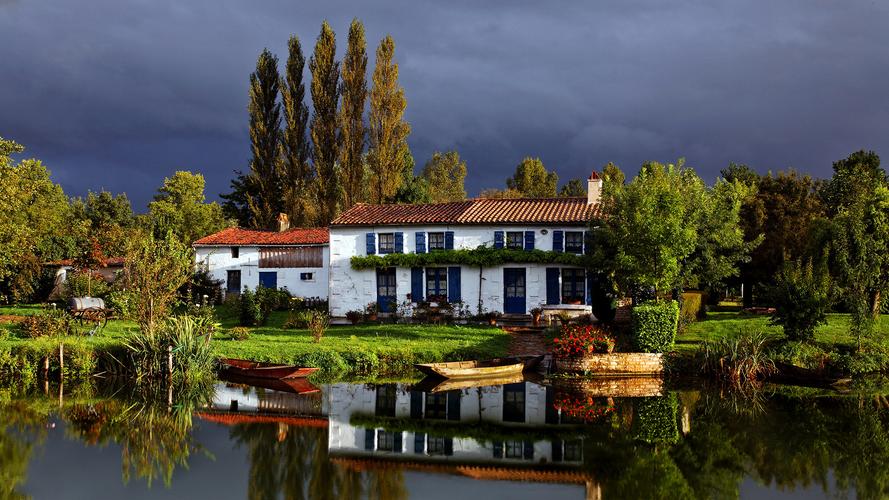Preserving India’s Rich Cultural Heritage: An Exploration of the 14 Intangible Treasures
India is a land steeped in history, with a rich cultural heritage that dates back centuries. Despite the ravages of time and modernization, the country continues to cherish its traditions and customs. India boasts of a myriad of intangible treasures that reflect its diversity and richness, and preserving these treasures has become a collective responsibility. In this article, we provide an overview of the 14 Intangible Treasures of India and explore the measures taken to preserve them.
1. Oral traditions and expressions
Oral traditions and expressions have been an integral part of Indian culture for centuries. The country has a rich tradition of storytelling, folk songs, and dance forms such as Kathak, Bharatanatyam, and Kuchipudi. Efforts are being made to preserve these art forms through workshops, cultural festivals, and online platforms.
2. Performing arts
India is renowned for its performing arts, including classical music, theater, and dance. These forms have evolved over the years and are still practiced today through committed artists and institutions who seek to preserve their original flavor.
3. Festivals
India is known for its numerous festivals that celebrate its cultural and religious diversity. The rich symbolism, food, and music associated with these festivals have become an integral part of the country’s identity. Efforts are being made to preserve the authenticity of the festivals while creating opportunities for cross-cultural exchange.
4. Knowledge and practices concerning nature
Traditional Indian knowledge systems recognize the interconnectedness of humans and nature. Practices such as Ayurveda, herbal medicine, and yoga have been handed down through generations and are seeing renewed interest in modern times.
5. Traditional craftsmanship
Indian craftsmanship reflects the country’s exquisite artistic sensibilities and cultural diversity. Artisans create exquisite handicrafts such as textiles, pottery, jewelry, and woodwork, which continue to attract global attention. Efforts are being made to preserve traditional craftsmanship through training programs and market linkages.
6. Celebration of life
At the heart of Indian culture is a deep sense of joy and celebration. This is reflected in the country’s art, religion, and social customs. Efforts are being made to promote this spirit of celebration while preserving its essence.
7. Knowledge and skills of traditional medicine
Traditional Indian medicine systems such as Ayurveda, Siddha, and Unani have a rich history that goes back centuries. These systems provide holistic healthcare that considers an individual’s physical, mental and spiritual well-being. Efforts are being made to promote awareness about traditional medical systems while integrating them with allopathic medicine.
8. Traditional ecological knowledge
Traditional ecological knowledge systems in India are rooted in the recognition of the interconnectedness of humans and nature. Practices such as sacred groves and agroforestry are being promoted as sustainable models for land management and conservation.
9. Rituals and customs
Indian rituals and customs reflect the country’s cultural diversity and are deeply ingrained in people’s lives. Efforts are being made to preserve these customs and prevent their commercialization and commodification.
10. Social practices, rituals, and festive events related to life-cycle
India has a rich tradition of life-cycle rituals and practices, from birth to death. These rituals provide a sense of continuity and meaning, and efforts are being made to preserve them while promoting their relevance in contemporary times.
11. Traditional knowledge and skills related to textile
Indian textiles have a rich history that goes back centuries. From handloom sarees to intricate embroidery, these textiles reflect the country’s diverse cultural influences. Efforts are being made to promote traditional textile skills while integrating them with sustainable practices.
12. Practices associated with the maintenance of community health
Community health has been an essential aspect of Indian culture for centuries. Practices such as community kitchens, free healthcare, and sanitation are being promoted as effective models for health intervention.
13. Traditional knowledge and skills related to food
Indian cuisine is renowned for its rich flavors, textures, and aromas. Traditional food systems such as millet cultivation and forest foods are being promoted as sustainable models for food security and nutrition.
14. Traditional sports and games
Sports and games have been an integral part of Indian culture for centuries. Efforts are being made to promote traditional games such as Kabaddi, Kho-kho, and Gulidanda while preserving their authenticity and cultural significance.
In conclusion, India’s intangible treasures continue to inspire awe and admiration across the world. Efforts are being made by individuals, institutions, and the government to preserve these treasures and promote their relevance in contemporary times. By preserving India’s rich cultural heritage, we not only safeguard our past but also shape our future.
(Note: Do you have knowledge or insights to share? Unlock new opportunities and expand your reach by joining our authors team. Click Registration to join us and share your expertise with our readers.)
